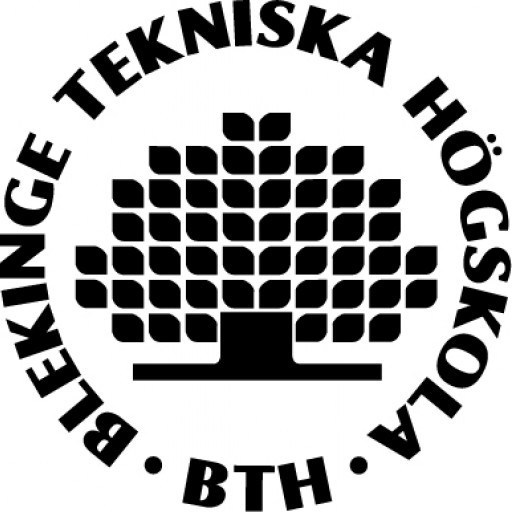Photos of university / #chalmers.university
Communication Engineering at Chalmers University of Technology is an innovative and comprehensive program designed to prepare students for a dynamic career in the rapidly evolving field of telecommunications and information technology. The program provides in-depth knowledge of the core principles of communication systems, signal processing, networking, and wireless technologies, combined with practical skills through laboratory work and industry collaborations. Students will explore topics such as digital communication, radio frequency systems, optical communications, and network security, gaining a solid understanding of both theoretical and applied aspects of communication engineering. The curriculum emphasizes interdisciplinary learning, encouraging students to develop problem-solving abilities, creativity, and critical thinking essential for tackling modern challenges in communication infrastructure and digital connectivity. Throughout the program, students are introduced to emerging technologies like 5G, Internet of Things (IoT), and cloud-based communication services, positioning them at the forefront of technological innovation. The program also offers opportunities for international exchange, internships with leading companies, and participation in cutting-edge research projects, enabling students to build valuable networks and acquire real-world experience. Graduates of the Communication Engineering program at Chalmers are well-equipped for careers in industry, research, or entrepreneurship, with opportunities to work in telecommunications companies, technology firms, and academia. The program aims to develop engineers capable of designing, optimizing, and managing complex communication systems, contributing significantly to the advancement of global connectivity and digital society. With its strong emphasis on technical expertise, hands-on learning, and industry relevance, the Communication Engineering program at Chalmers prepares students to become leaders in the intelligent communication networks of the future.
The Master's Programme in Communication Engineering at Chalmers University of Technology is designed to equip students with the advanced knowledge and skills necessary to develop and manage cutting-edge communication systems. This comprehensive programme covers a broad spectrum of topics, including wireless and mobile communication, network infrastructure, signal processing, and data transmission techniques. Students will explore the fundamental principles behind modern communication technologies and their applications in various industries, such as telecommunications, internet services, broadcasting, and satellite communications.
Throughout the programme, students will engage in coursework that combines theoretical foundations with practical applications. Core courses include digital communication, communication networks, radio frequency design, and information theory. These courses are complemented by specialized electives such as optical communication, 5G and beyond, Internet of Things (IoT), and cyber-physical systems. The curriculum emphasizes the importance of research, innovation, and the development of new communication solutions to meet the demands of an increasingly connected world.
Laboratory work, project assignments, and collaboration with industry partners are integral components of the programme, providing students with hands-on experience in real-world scenarios. This practical approach prepares graduates to excel in designing, deploying, and optimizing communication networks and devices. Furthermore, the programme encourages students to develop critical thinking and problem-solving skills essential for addressing technical challenges in the field.
Graduates of the Communication Engineering programme will be well-equipped for careers in research and development, system design, network management, and consultancy within international technology companies, telecommunications operators, and research institutions. They will also be qualified to pursue doctoral studies in related fields, contributing to innovation and advancement in communication technologies.
The programme is offered in English and typically spans two years, with a multidisciplinary approach that integrates computer science, electrical engineering, and applied physics. Students will have access to state-of-the-art laboratories, modern facilities, and a vibrant academic community that fosters collaboration, creativity, and lifelong learning. By completing this programme, students will gain a deep understanding of communication systems' design, implementation, and management, positioning them at the forefront of an essential and ever-evolving technological domain.
The Bachelor’s Programme in Communication Engineering at Chalmers University of Technology requires applicants to have completed the Swedish national preparatory courses for university studies, or an equivalent international qualification. Prospective students must demonstrate proficiency in English, typically through standardized tests such as IELTS with a minimum overall score of 6.5, or TOEFL iBT with a minimum score of 90. The programme seeks candidates with a strong background in mathematics and physics at the upper secondary school level, emphasizing abilities in problem-solving, analytical thinking, and technical understanding. As the programme is designed to prepare students for a multidisciplinary field, prior experience or coursework in computer science, electronics, or communication systems is advantageous but not mandatory. Applicants should also possess good communication skills and the capacity to work collaboratively, as teamwork is an integral part of the curriculum. Secondary education that includes advanced coursework or specialization in engineering, technology, or related sciences enhances the applicant’s profile. The selection process considers academic performance, motivation, and relevant extracurricular activities that demonstrate interest and commitment to the field of communication engineering. Chalmers University emphasizes diversity and encourages applicants from various backgrounds to apply, provided they meet the academic and language prerequisites. Candidates are advised to prepare a motivation letter explaining their interest in communication engineering and how their background aligns with the objectives of the programme. Additionally, some courses may have specific prerequisites, and students should verify the detailed admission requirements on the official Chalmers website. The admission process is competitive, and meeting the minimum requirements does not guarantee acceptance; therefore, applicants are encouraged to present a strong application with relevant qualifications and clear motivation. Successful applicants will develop skills necessary for designing, analyzing, and improving communication systems, and will be prepared for careers in industries such as telecommunications, information technology, and media. The curriculum includes a mix of theoretical coursework, practical laboratory work, project work, and industry collaborations to ensure graduates are well-equipped to meet the demands of the evolving communication technology sector.
Financing studies for the Communication Engineering master's program at Chalmers University of Technology are designed to support students throughout their education, ensuring access to high-quality education regardless of financial background. Tuition fees for international students are applicable, while students within the European Union (EU)/European Economic Area (EEA) benefit from tuition-free studies. The tuition fee for non-EU/EEA students is typically specified on the university's official website and may vary slightly between academic years; as of recent data, the fee was around SEK 150,000 per academic year.
Chalmers offers a range of scholarships to help cover tuition fees for fee-paying students. The Chalmers IPOET Scholarship is mainly aimed at students from non-EU/EEA countries and covers up to 75% of the tuition fee. To be eligible for this scholarship, applicants must demonstrate academic excellence and submit a complete application for their master's program before the application deadline. Other scholarship opportunities are available through external agencies and governmental programs, which may require separate applications and have specific eligibility criteria.
Living expenses in Gothenburg, including accommodation, transportation, food, and personal expenses, should be budgeted separately, with an estimated amount of SEK 10,000–12,000 per month. Students are encouraged to explore part-time job opportunities in Gothenburg, which can help supplement their income but should not compromise their academic performance.
Students are also advised to consider external loan options, such as government student loans available for Swedish residents or private loans from financial institutions if applicable. International students should be aware of potential eligibility criteria and requirements for such loans, including creditworthiness and residency status.
Financial planning is an essential part of studying at Chalmers, and the university offers resources and guidance for students seeking financial aid or planning their budgets effectively. Applicants are encouraged to check the official Chalmers University of Technology website and contact their admissions office for the most current information regarding tuition fees, scholarship opportunities, and financial support options.
The Communication Engineering programme at Chalmers University of Technology is designed to provide students with a comprehensive understanding of modern communication systems, networking, and signal processing. The programme aims to equip graduates with the theoretical knowledge and practical skills necessary to develop, analyze, and optimize various communication technologies relevant to today's digital society. Students will explore areas such as wireless communication, mobile networks, optical communication, data transmission, and internet infrastructure. The curriculum typically includes courses in electrical engineering fundamentals, programming, digital signal processing, antenna theory, and network security, among others. Throughout their studies, students are encouraged to engage in laboratory work, research projects, and collaboration with industry partners, fostering both innovative thinking and real-world problem-solving skills. The programme also emphasizes interdisciplinary learning, combining aspects from computer science, electronics, and physics, to prepare students for diverse career paths in telecommunications, information technology, and related fields. Graduates of the Communication Engineering programme are well-equipped to work in research and development, system design, troubleshooting, and management roles within telecommunications companies, government agencies, and tech startups. The programme benefits from the university's strong links to industry, offering students opportunities for internships and networking. The courses are taught in English, and the programme maintains an international environment, attracting students from around the world. Overall, the Communication Engineering programme aims to develop professionals who can contribute to the advancement of global communication networks and support the rapid growth of the digital economy.








